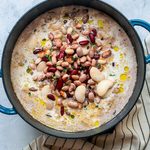Are Canadians really deficient in vitamin D?
Are Canadians getting enough vitamin D? A survey just released from Statistics Canada says, yes, most Canadians have adequate concentrations

Are Canadians getting enough vitamin D? A survey just released from Statistics Canada says, yes, most Canadians have adequate concentrations of vitamin D in their blood to be healthy. But then some news outlets are reporting that the survey suggests that most of us don’t have high enough levels of the vitamin that experts say helps ward off diseases such as cancer and osteoporosis.
So what gives? Do most of us have enough vitamin D in our blood or are we deficient? I called up Reinhold Vieth, a professor of nutrition at the University of Toronto and leading expert on vitamin D, to clear things up.
His take: The answer depends on how you look at the survey. ‘The adequacy the statement relates to is a perspective from 1995 when your desirable level for 25-hydroxy [vitamin D-level test] was 39.5 nanomoles per litre [of blood],’ he explains. (A nanomole is the unit by which vitamin D is measured.) However, he adds that ‘the clinical trial evidence that has been broadly accepted since then [indicates that] you should have a level that’s 75 nanomoles per litre or higher.’
For the survey, conducted between 2007 and 2009, StatsCan used those old-school numbers to define vitamin D inadequacy and found that most of us had a concentration of 67.7 nanomoles per litre. So, if we all lived back in 1995, we’d be golden. However, by modern standards, Vieth says that’s below the widely accepted standard that the optimal concentration for preventing diseases (a fact which StatsCan acknowledges in the survey).
Still confused? There is currently a dietary allowance committee in place to review recommendations for vitamin D and they say new numbers should be ready as early as June.
In the meantime, it’s not difficult to boost your vitamin D levels up to the 75 nanomoles per litre mark, says Vieth. ‘There’s nothing easier in your life to deal with than vitamin D’the only thing you really have to do is take a supplement,’ he says. How much you take is a decision you should make with your healthcare provider.
Related:
‘ The best sources of vitamin D
‘ 9 ways to boost your immunity
‘ Vitamin D Smart Smoothie




